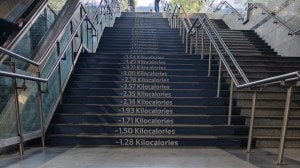Govt action leaves licensed opium users sans fix
AMRELI, May 3: For Bachubhai Tapubhai, a Kathi Darbar of Amreli, the day starts with a dose of opium. In his courtyard in Unchiya village...

AMRELI, May 3: For Bachubhai Tapubhai, a Kathi Darbar of Amreli, the day starts with a dose of opium. In his courtyard in Unchiya village of the Rajula taluka, he is barely able to get up from his bed. His body is wracked by convulsions for he hasn’t had his kala, a concoction of poppy extract.
Bachubhai is one of 2,000-odd poppy-extract users, mainly Kathi Darbars, who had been granted licences by erstwhile princely kingdoms to consume opium. Today, these old men, all of whom are above 60 and poverty-stricken, have to fight and beg for their quota of poppy extract, which has become scarce and expensive, for the government is closing down many licensed opium shops to stanch the large-scale black-marketing of the hallucinogen.
Says Arvind Pathak, an advocate, whose family owns an opium shop: “The condition of some of these addicts is pitiable. They have squandered away all their property and money to maintain this luxurious addiction. If they don’t get their daily dose they convulse and begin to shiver. "Some of them have became labourers and do petty jobs to buy opium. If you don’t have the stocks to give them opium, you can only sympathise with them.”
The closure of the opium shops has created such a shortage that these old men have to hop from one taluka to another, often travelling more than 200 kms a day in search of opium. They fight, beg, and plead for a few grams of the stuff to see them through the day.
Recently, these old men gathered in Rajula for a meeting to demand that the government grant more licences to shops so that they get their daily dose. But nobody is listening.
No longer for them the luxury of kasumbo ghodhvo, the ceremonial drinking of palmfuls of poppy extract mixed with water in a group. For years on end these men have spent long hours sitting in groups in courtyards dreaming away opium dreams, whiling away their time. Those were the days of plenty; their royal forefathers had left them enough money and property. All that has been spent mindlessly.
The use of opium among the Kathi Darbars is legendary. They say there is no joke about Kathi Darbars without the mention of opium in it. And in places like Jafrabad, Nageshri, and Rajula opium is used as medicine against diarrhoea, even for small children. Many a time, that is when the addiction begins.
Every month, opium users line up for their quota at the licensed opium outlets in the district. At the time of Independence, there were some 30 outlets in Amreli district. “But as time passed and new laws were enforced, many shops surrendered their licences,” says Kalabhai, one of the many aging addicts, a descendant of the royal family of Wadia.
In the past few months, about a dozen licences were either cancelled or suspended by the department of prohibition & excise, following complaints of black-marketing in opium. Now there are 16 licensed shops in the district.
Says Vikramsinh Sisodiya, prohibition and excise inspector of Amreli, “When we seize excess stock of poppy or opium, we detain the retailers. If a police case is made out, licences are suspended. Because of this, few retailers want to run the business and are closing shop.”
Licensed outlets are allowed to deal in 100 kg of opium a month. And licensed users are allowed to use one kg of the stuff in a month. Government has set the price at Rs 60 per kg. But the price users pay is always much higher. Says Wardhraj, a former land-holder who is addicted to opium, “The opium is as good as sold even before the stock reaches the outlets. For it is already decided who will get how much. If you are unlucky you may have to buy in the black market for Rs 400-600, depending on how desperate you are.”
The closure of 12 shops has created a shortage of 1,200 kg of opium, leading to the growth of the black market.
But while on the one hand the government is cracking down, cancelling retailers’ licences, it continues to issue users’ licences.
“With a certificate from a primary health centre, you still can get a licence to use opium,” says Suresh Leheri, a former opium retailer. “For just Rs 5 officially. But there is so much corruption from top to bottom that you can end up shelling out Rs 200.” But additional district magistrate and resident deputy collector Ashok Sharma says users’ licences are to a very few. The procedure is lengthy, and the state government has to clear them.



- 01
- 02
- 03
- 04
- 05




























